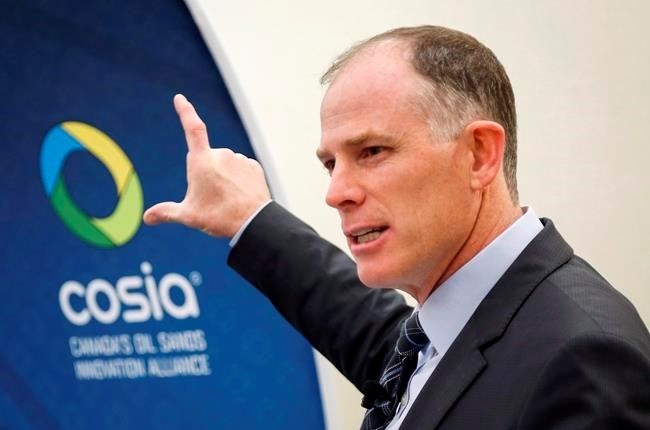OTTAWA — The co-chair of an expert panel designed to advise Canada on how to reach net-zero emissions says it is exploring the idea of creating budgets for greenhouse gas emissions.
Dan Wicklum says the net-zero advisory body authored a report summarizing what other groups in Canada and beyond have said about ways to neutralize carbon-related emissions by 2050.
The Liberal government recently passed legislation enshrining this target into law, meaning by that year, any greenhouse gas emissions still being released must be offset by other measures.
A group of 14 experts with backgrounds in climate, labour and business were assembled to provide the government with advice and recommendations on how to reach its new goal.
The expert panel's first report says one of the principles that will inform the panel's future work is the need to "act urgently" and not wait too long to make steeper emissions cuts.
"If you want to create a pathway to net-zero, don't start with increasing emissions in the short term, and then promising to have deep cuts closer to 2050," said Wicklum, who is president and CEO of the Transition Accelerator, a charitable organization.
In April, Canada increased its climate targets by promising to cut its carbon-related emissions by 40 to 45 per cent below 2005 levels, which is deeper than the 30 per cent the country committed to as part of the Paris Agreement.
Environment Minister Jonathan Wilkinson has said Canada is currently on track to reduce its emissions levels by 36 per cent by 2030, and the work to make up the difference is ongoing.
The panel found the plans most likely to hit net-zero "are the ones that start now, use a carbon budget as a basic tool, and increase ambition to keep the 2050 goal within reach."
Generally, a carbon budget sets how many cumulative carbon-related emissions are allowed within a certain amount of time, which the report says means pollution has to fall to a certain level by a particular year.
The Green Party of Canada had pushed the Liberal government to ink carbon budgeting into its more ambitious climate goals, saying countries such as the United Kingdom use this policy to stay on track for its emission-reductions goals.
Wicklum said that while the panel isn't recommending Canada adopt such a policy, carbon budgets are one way to measure progress.
"Intuitively people understand budgets," he said.
"So the concept of a carbon budget is definitely something we'll be exploring."
The Opposition Conservatives have panned the advisory panel as being stacked with so-called "climate activists," which it says threatens to provide advice that will harm the country's oil and gas sector, already hit with job losses.
Conservative environment critic Dan Albas says the new report makes some interesting points, but said that to ensure emissions are reduced "while attracting jobs and investment," the body needs to lean on the expertise of oil and gas companies, which are essential in the transition to net-zero.
"Unfortunately, the Liberal government has chosen to listen to anti-oil and gas activists instead of partnering with industry and provinces," Albas said in a statement.
Conservative Leader Erin O'Toole, along with 115 of his MPs, recently voted against the passage of the government's net-zero legislation, known as Bill C-12, which sets rolling five-year emissions targets to reach 2050. The Conservative party was the only opposition party to do so.
"The C-12 vote was not a plan. It was actually just more showmanship by Justin Trudeau," O'Toole said in a recent video shared on social media.
Wicklum said more than 120 countries have set a goal to hit net-zero by 2050 and the issue is not one that pits the provinces or Western Canada against Ottawa.
"When I think of the oil and gas sector, they need to drive to net-zero because of this global imperative, not simply because of what the current national government is thinking," he said, adding the advisory panel doesn't represent specific interests.
Wicklum says the sector is Canada's top emitter and noted there are expansion plans for the oilsands.
"They're working hard to reduce their emissions intensity, but because they have plans to increase their production, their emissions are set to increase, which is not well aligned with the concept of getting to net-zero. But that's the reality of that sector."
This report by The Canadian Press was first published July 7, 2021.
Stephanie Taylor, The Canadian Press




